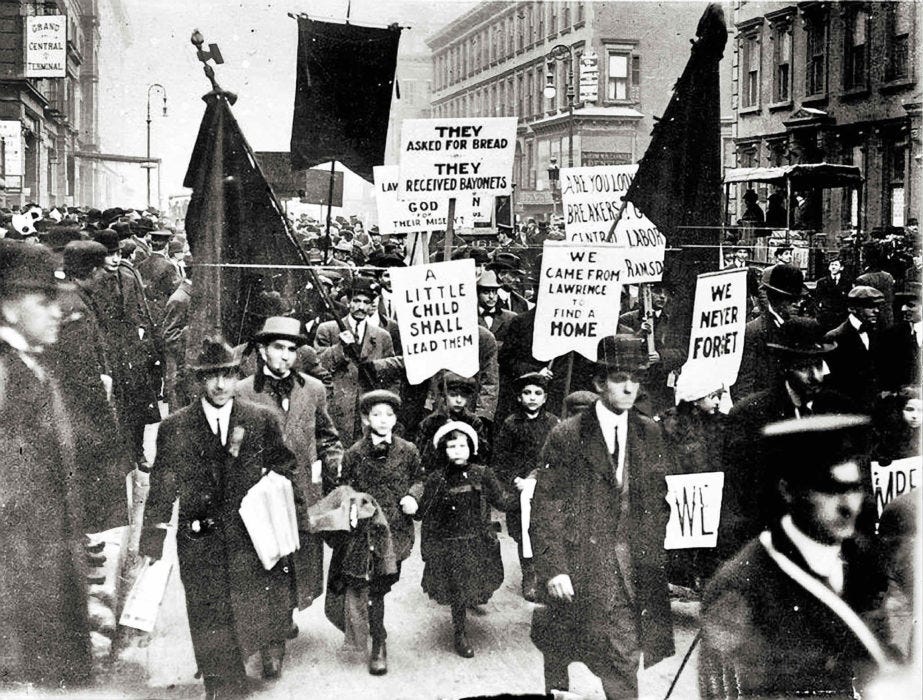Time to Turn It Around and Think Big
A cruel budget may break the system—but it also opens the door for bold, inclusive reforms. History shows that from great suffering can come the momentum for real, lasting change.

By Jeremi Suri
The budget passed by the current Congress and signed by President Trump is the most destructive piece of legislation since the early twentieth century. It takes our country back to that time. The federal government is now drastically cutting support for health care, food assistance, education, science, and technology. The priorities of this government are clear: tax cuts for the rich, subsidies for corporations, deportations, and protections for the privileges of white men. This is twenty-first-century Jim Crow.
Republicans have forced this agenda on the country. In most polling, less than one-third of Americans support the legislation, and that is before the pain of cuts is felt by millions of citizens! This is one of the most unpopular bills in recent history, and it will only attract more opposition as rural hospitals close, working families lose their nutrition assistance, and businesses cannot hire educated or low-cost labor.
The pain will be deep, widespread, and immediate. All the propaganda in the world will not convince people who lose health care, food, and shelter that the legislation is helping them. The Republicans will own this mess. Their bill. Their Jim Crow.
These dismal conditions are a source of hope for me. In our history, abject failure is often the necessary precursor for long-overdue change. The widespread poverty, corruption, and deprivation of Gilded Age society are what finally convinced a majority of voters to support progressive reforms, including minimum wage laws, child labor prohibitions, public school financing, public insurance for workers, anti-monopoly and anti-nepotism statutes, and, eventually, income taxes for the wealthy. By 1913, when the country ratified the Sixteenth Amendment to create a federal income tax, the nation looked fundamentally different from 1890. White, urban citizens had some basic protections, and the robber barons of the prior century were at least partially contained. Progressive reforms began mostly in cities and states, and they were nationalized with the New Deal in the 1930s.
A similar dynamic occurred for civil rights. In the early twentieth century, public discrimination and violence against African-Americans were widespread, north and south. Southern segregation was most obvious and unapologetic, but African Americans were largely excluded from higher education, mainstream business, sports, and housing in the North as well. The same applied to other minorities, including Jews, Muslims, and Native Americans. These conditions worsened as large waves of immigration created fears of a “mongrelized” nation. Stricter racial separation laws and anti-immigration legislation, particularly the Immigration Act of 1924 which created narrow quotas, followed these fears. So did the spread of lynchings.
Racism was popular, but it soon became very expensive. During the Second World War, the United States needed more labor in factories, in schools, and in the military. After the war, the same was true and minorities had earned undeniable status as veterans who defended the nation. The GI Bill gave them unprecedented access, still unequal, to higher education and home ownership. A. Philip Randolph, Rosa Parks, Martin Luther King, Jr., John Lewis, and other civil rights advocates understood that a majority of Americans now opposed the most violent and costly exclusions of minorities. The activists built a reform agenda around opening access for African Americans and other minorities. They framed it as a rejection of the worst excesses of racism, and they gained the support of politicians, especially President Lyndon Johnson, who understood that the country needed a more integrated workforce for prosperity at home and competition abroad.
We are entering a historical period like the progressive and civil rights eras. With the new budget bill, the long-festering inequalities and injustices in our society will be more widely felt. These inequalities and injustices will diminish the economy, healthcare, education, housing, and even entertainment for most Americans. The worst suffering will be concentrated on the vulnerable, but the pain will affect most Americans. Voters, even loyal Republicans, will look for new solutions. They will need help from the same government that they are now slashing.
This is where an ambitious reform agenda must emerge. As we elucidate the horrors of current legislation, Democratic and other leaders must offer a promising, pragmatic alternative. That does not mean replacing white identity with other identities. It means serious new programs that visibly benefit everyone. This agenda includes true universal health care, real education and work opportunities, affordable housing access, food security, and regulation of monopolies. Americans also want democratic stability – a government that will enforce the rule of law and treat people fairly, not just preferences for cronies and kiss-ups.
An ambitious reform agenda requires work. We are entering the starting point. In a moment of chaos and suffering, the reform agenda must be a priority. It must be designed for all citizens. It must get attention now from leaders who want to turn things around. If history is any guide, the work will start at the local level and then move its way to the top.
Now is the time to think big and experiment with small steps where possible. Now is the time to show people of all kinds that there are still leaders who care, and there are still ways that government can help raise us up, not push us down.
The recent budget bill is a horror show, and that is the best and worst thing about it. The suffering will be deep and widespread, but the motivation to change direction will now be greater than before. An alternative pathway for our country is more necessary and undeniable than ever in recent decades. The future belongs to forward, pragmatic thinkers who can articulate a new agenda. Their time has come.
As in our past, collective suffering can discipline the mind and push people to think anew. Above all, collective suffering exposes the lies and encourages a return to the basic truths of food, shelter, health, and safety. This is the moment to think big about basic truths. This is the moment to turn things around.
Also see in:
German, Turkish, Chinese, Spanish
Jeremi Suri holds the Mack Brown Distinguished Chair for Leadership in Global Affairs at the University of Texas at Austin. He is a professor in the University's Department of History and the LBJ School of Public Affairs. Professor Suri is the author and editor of eleven books on politics and foreign policy, most recently: Civil War By Other Means: America’s Long and Unfinished Fight for Democracy. His other books include: The Impossible Presidency: The Rise and Fall of America’s Highest Office; Liberty’s Surest Guardian: American Nation-Building from the Founders to Obama; Henry Kissinger and the American Century; and Power and Protest: Global Revolution and the Rise of Détente. His writings appear in the New York Times, Washington Post, Wall Street Journal, CNN.com, Atlantic, Newsweek, Time, Wired, Foreign Affairs, Foreign Policy, and other media. Professor Suri is a popular public lecturer and comments frequently on radio and television news. His writing and teaching have received numerous prizes, including the President’s Associates Teaching Excellence Award from the University of Texas and the Pro Bene Meritis Award for Contributions to the Liberal Arts. Professor Suri hosts a weekly podcast, “This is Democracy.”






Very discouraging outlook, but a very encouraging outline for an approach that will give the country back to the people. Very well written and documented as to where we currently stand and where we can go if we put in the required effort.
We still have much to do to gain the attention and trust of ‘middle America.’ I think there’s at least one ‘line of attack’ that can help:
Donald Trump just really, really hates America.
America values honesty, fair play, integrity. As a pathological liar and con man, Trump has never been able to command the ‘respect,’ power, and regal status he craves. He now feels these to be within his reach.
Trump is not out to make America great again. He’s out to make America grovel at his feet.
Americans need to know this. America needs to understand that this is the entirety of Trump’s motivation and his self-dealing end game so that America can stop him.
https://open.substack.com/pub/jonthinks/p/donald-trump-hates-america?r=mrvx1&utm_medium=ios